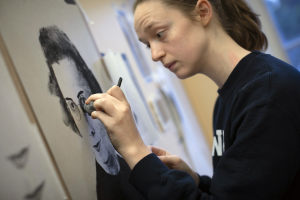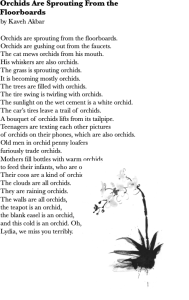Susan Meiselas photography has notably reshaped the landscape of documentary photography, with her seminal work “44 Irving Street, Cambridge, MA” serving as a pivotal moment in her artistic journey. Captured while she was pursuing her master’s degree at Harvard, this series exemplifies Meiselas’s unique ability to blend photography and storytelling to connect deeply with her subjects. Her exploration of personal spaces within a boarding house provided insights not only into the lives of her neighbors but also highlighted the power dynamics inherent in portraiture. The ongoing exhibition at the Harvard Art Museums allows viewers to engage with the narratives behind the images, reinforcing the significance of documentary photography in contemporary art. Through the lens of entrepreneurial photography, Meiselas’s work invites a discussion on the intersection of personal narrative and social context, making her a significant figure in the art world.
The artistic journey of Susan Meiselas exemplifies the profound impact of visual storytelling within the realm of photography. Her acclaimed series, “44 Irving Street, Cambridge, MA,” encapsulates a vibrant exploration of community life, resonating well beyond the confines of traditional photography. As a documentary photographer, Meiselas captures intimate portraits that reveal complex narratives about her subjects and their environments. Engaging with her work encourages a deeper understanding of the relationships and connections formed through the medium, as well as the ethical considerations in representing diverse voices. Meiselas’s contributions to the field demonstrate how photography acts as a powerful tool for empathy and understanding, further enriched by her academic affiliation with the Harvard Art Museums.
The Impact of the ’44 Irving Street’ Series on Susan Meiselas’ Career
Susan Meiselas’ ’44 Irving Street’ series serves as a critical turning point in her career as a photographer, showcasing her early exploration into the realm of documentary photography. Initially focusing on her academic goals, Meiselas discovered a passion for capturing the essence of everyday life through the lens of her camera. This groundbreaking series, created during her master’s program, not only reflects the unique personalities of her neighbors but also highlights her ability to build connections through her work. Each image is a testament to the power of storytelling in photography, emphasizing the importance of the relationship between the subject and the photographer.
The photographs in the ’44 Irving Street’ series do not merely exist as static images; they evoke emotions and encourage dialogues about identity and personal space. By engaging with her subjects and gaining insights into their lives, Meiselas fundamentally altered her approach to photography, moving beyond mere documentation to foster a collaborative relationship. This shift not only paved the way for her future projects but also reinforced her commitment to utilizing photography as a medium for storytelling and social commentary.
Exploring Documentary Photography: A Journey Through Susan Meiselas’ Lens
Documentary photography embodies a unique premise: capturing real life and presenting it in ways that resonate with audiences. Susan Meiselas exemplifies this genre through her ’44 Irving Street’ series, where each photograph becomes a narrative about the lives of her neighbors in Cambridge. Rather than focusing solely on aesthetic qualities, Meiselas uses her camera to delve into the intricacies of human experience, turning mundane moments into profound stories. This powerful form of storytelling allows viewers to connect with her subjects on a deeper level, breaking down barriers and fostering empathy.
In her work, Meiselas highlights the complexities of identity and the roles individuals play in their environments. By observing how her subjects personalized their spaces, she captures the essence of their lives, showcasing the diverse ways people navigate their worlds. This observational approach is essential in documentary photography, as it invites viewers to engage with the stories behind each image, prompting critical reflections on their own perceptions of identity and space.
The Role of Photography in Storytelling and Connection
Photography and storytelling go hand-in-hand, as the former serves as a visual language that communicates narratives often left untold. In the case of Susan Meiselas, her experiences with the ’44 Irving Street’ series highlight the transformative power of photography in forging connections. Through her engagement with her subjects, Meiselas not only documents their lives but also amplifies their voices, allowing for an exchange of stories that enrich her photographic practice. This interplay between photographer and subject reveals the intricate layers of human experience and empathy, proving that every image tells a compelling story.
Moreover, Meiselas’ approach showcases the depth that can be achieved when photography transcends simple documentation. By inviting her subjects to share their feelings about their portraits, she adds an emotional layer that resonates with viewers. This focus on connection and understanding is a vital aspect of photography, particularly in documentary work, where the aim is often to shine a light on underrepresented narratives and inspire dialogue around societal issues.
Susan Meiselas: Influencing the Future of Documentary Photography
As a prominent figure in the realm of documentary photography, Susan Meiselas has played a crucial role in shaping the expectations and practices within the field. Her work, particularly the ’44 Irving Street’ series, has challenged traditional approaches to representation, urging photographers to consider the ethical implications of their craft. By emphasizing collaboration and inclusivity, Meiselas has paved the way for future photographers to explore innovative ways of storytelling, ensuring that the voices of their subjects are not only heard but celebrated.
In her continuous efforts to educate and inspire others, Meiselas integrates the concept of entrepreneurial photography into her teachings, advocating for photographers to find their unique narratives and share them with the world. This approach not only cultivates creativity but also helps emerging photographers navigate the evolving landscape of visuals, ensuring that the integrity of documentary photography remains intact even as the medium undergoes transformation. Her legacy is evident as she shapes a new generation of photographers who recognize the importance of storytelling in their work.
Exhibiting ’44 Irving Street’ at the Harvard Art Museums
The exhibition of Susan Meiselas’ ’44 Irving Street, Cambridge, MA’ at the Harvard Art Museums serves not only as a display of her work but also as a celebration of the connections she forged through her photography. The exhibit invites visitors to explore the rich narratives hidden within each image, reflecting the diverse lives of her neighbors and the unique spaces they inhabited. This opportunity to view her work in a gallery setting allows for a deeper engagement with the photographs, encouraging dialogues around personal identity and social context.
In addition to showcasing the raw beauty of Meiselas’ black-and-white prints, the exhibit integrates a modern twist with QR codes leading to written responses from her subjects. This innovative element allows viewers to access the thoughts and feelings of the individuals depicted, creating a multi-dimensional experience that enhances understanding and empathy. The fusion of visual art and personal storytelling within this exhibition exemplifies the transformative power of photography and the enduring impact of Meiselas’ work on contemporary art and culture.
The Sociological Bent of Meiselas’ Photography Course
Susan Meiselas’ initial foray into photography was marked by a course she took that emphasized a sociological approach. This unique perspective shaped her understanding of not only the technical aspects of photography but also the deeper connections that can be formed through the medium. Meiselas intuitively recognized that photography could serve as a vital tool for exploring societal dynamics and human relationships, leading her to document the personal lives of her neighbors in her ’44 Irving Street’ series.
Through this course, Meiselas learned to view photography as a bridge connecting her to others, enabling her to capture intimate moments of vulnerability and self-reflection. This understanding has become a defining characteristic of her artistic practice, as she continues to apply a sociological lens to her work. By combining photography with storytelling, Meiselas has created a unique niche in the art world where images serve not just as representations of reality but also as reflections of lived experiences that resonate with audiences.
The Intersection of Education and Photography in Meiselas’ Work
In addition to her impressive portfolio, Susan Meiselas has also contributed significantly to education, particularly in the context of documentary photography. After completing her studies, she taught photography to elementary school students in the South Bronx, using the medium to cultivate a sense of creativity and personal expression among her young pupils. By encouraging her students to explore their surroundings and connect with their community through photography, Meiselas instilled valuable lessons about storytelling and the significance of visual narratives.
This educational endeavor reflects Meiselas’ broader commitment to using photography as a tool for empowerment and self-discovery. The use of simple pinhole cameras allowed her students to approach the medium without the intimidation often associated with formal photography, focusing instead on the stories they wished to tell. Through this practical application of photography, Meiselas not only enriched the lives of her students but also reinforced the crucial role of education in shaping future generations of photographers and storytellers.
Revisiting Themes of Connection in Documentary Photography
As evidenced in her ’44 Irving Street’ series, the themes of connection and representation have become cornerstones of Susan Meiselas’ work. She continually explores how photography can foster relationships and offer a voice to those who are often left unheard. By recognizing the power dynamics present in the interaction between photographer and subject, Meiselas advocates for a more collaborative approach to documentary photography, encouraging an understanding that transcends mere visual representation.
Through her exhibitions and discussions, Meiselas invites audiences to critically engage with the complexities of photographic representation. Her ongoing dialogue around connection, collaboration, and inclusivity not only enriches the field of documentary photography but also serves as a reminder of its potential to evoke empathy, challenge societal norms, and bridge divides. By revisiting these themes, Meiselas continues to inspire both seasoned photographers and newcomers to approach their craft with a sense of responsibility and mindfulness.
The Lasting Influence of Susan Meiselas’ Photography on Future Generations
Susan Meiselas’ contributions to documentary photography have left an indelible mark on the art world and continue to influence aspiring photographers today. By demonstrating that photography can be a powerful medium for storytelling and social engagement, she encourages a generation to explore their narratives while remaining mindful of their subjects. Her commitment to collaborative practice has opened doors for discussions about ethics in representation, making it a priority for emerging photographers to consider the implications of their work.
Furthermore, Meiselas’ mentorship and educational initiatives promote a culture of sharing and creativity within the photographic community. She champions the idea that every photographer has a story worth telling, regardless of their background or experience level. Through her ongoing influence in both academia and the art world, Meiselas inspires future generations to approach photography not just as a profession but as a means of connecting, exploring, and understanding the world around them.
Frequently Asked Questions
What is the significance of Susan Meiselas’ ’44 Irving Street’ series in her photography career?
Susan Meiselas’ ’44 Irving Street’ series marks a pivotal moment in her photography career, showcasing her transition from a student at Harvard to an influential documentary photographer. The series reflects Meiselas’ early exploration of photography and storytelling, revealing her ability to connect with subjects and emphasize their personal narratives through her lens.
How does Susan Meiselas use photography to tell stories in her work?
In her work, particularly in the ’44 Irving Street’ series, Susan Meiselas utilizes photography as a medium for storytelling by capturing the intimate lives and environments of her subjects. By engaging with individuals and eliciting their written reflections on their portraits, Meiselas demonstrates how photography can foster connections and deepen narratives, making it a powerful tool for documentary photography.
Where can I view Susan Meiselas’ ’44 Irving Street’ photographs?
You can view Susan Meiselas’ ’44 Irving Street, Cambridge, MA’ photographs at the Harvard Art Museums, where the series is currently on display. This exhibition provides an opportunity to see her early documentary photography and the stories behind each subject.
What themes are explored in Susan Meiselas’ ’44 Irving Street’ photography series?
Susan Meiselas’ ’44 Irving Street’ series explores themes of connection, individuality, and the complexities of representation in photography. Through her portraits and the personal letters from her subjects, Meiselas delves into the nature of identity and the relationship between the photographer and the subject.
How did Susan Meiselas’ education at Harvard influence her photography?
Susan Meiselas’ education at Harvard significantly influenced her photography, particularly through a course that integrated sociology and photography. This course inspired her to create the ’44 Irving Street’ series, laying the foundation for her future work in documentary photography, where she focused on building connections and telling powerful stories.
What can visitors learn about Susan Meiselas’ approach to documentary photography from the ’44 Irving Street’ exhibition?
Visitors to the ’44 Irving Street’ exhibition can learn about Susan Meiselas’ unique approach to documentary photography, which emphasizes collaboration, personal narrative, and the emotional exchanges between photographer and subject. This exhibition invites viewers to reflect on the power dynamics involved in representation through visual storytelling.
What role do personal reflections play in Susan Meiselas’ ’44 Irving Street’ series?
Personal reflections are integral to Susan Meiselas’ ’44 Irving Street’ series; after capturing her subjects, she invited them to share their thoughts about their portraits. These responses not only provide insight into her subjects’ identities but also highlight the reciprocal nature of storytelling in documentary photography.
How has Susan Meiselas’ ’44 Irving Street’ series impacted her later photographic work?
The ’44 Irving Street’ series has had a lasting impact on Susan Meiselas’ later photographic work by establishing key themes such as connection and representation. Additionally, it laid the groundwork for her collaborative approach to photography, where she continues to explore the complexity of relationships between subjects and the act of photographing.
| Key Point | Details |
|---|---|
| Background of Susan Meiselas | Susan Meiselas is a documentary photographer and president of the Magnum Foundation, who initially focused on education. |
| ’44 Irving Street, Cambridge, MA’ Series | This series marked a pivotal moment in her career, showcasing candid portraits of her neighbors in Cambridge. |
| Artistic Approach | Meiselas focused on connection and dialogue with her subjects, using portraits to explore their personal spaces and identity. |
| Themes in Photography | Her work often reflects themes of connection, representation, and collaboration, emphasizing the relationship between photographer and subjects. |
| Educational Impact | After ‘Irving Street’, she taught photography to children, emphasizing storytelling through images to foster community connections. |
| Current Exhibition | Photographs from the ’44 Irving Street’ series are on display at the Harvard Art Museums until April 6. |
Summary
Susan Meiselas photography reveals a profound narrative that intertwines personal connection and social commentary. Through her series ’44 Irving Street, Cambridge, MA’, Meiselas highlights the intricacies of identity through the intimate portrayals of her neighbors. Each photograph not only serves as a visual artifact but also as a catalyst for dialogue about self-perception and representation. Her journey from an educational environment to an impactful career showcases how photography can be a powerful means for connection and storytelling, ultimately reflecting her ongoing commitment to exploring the nuances of human experience in her artistic practice.




